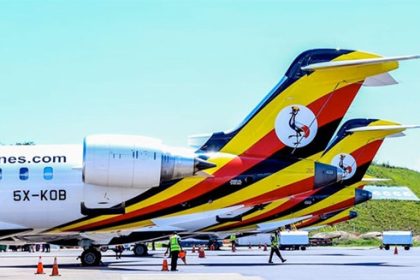IATA flags barriers to aviation growth in Africa

The International Air Transport Association (IATA) is urging African governments to take decisive steps to unlock the continent’s aviation potential, warning that long-standing challenges around safety oversight, excessive taxation, and blocked airline revenues are undermining the industry’s ability to support wider economic development.
Speaking in Nairobi, IATA’s Regional Director for External Affairs in Africa, Somas Appavou, said aviation’s contribution to Africa’s GDP—currently valued at USD75 billion—could grow substantially if governments treated the sector as a priority enabler of jobs, trade, and connectivity.
“Africa’s aviation market is projected to double by 2044, with annual growth of 4.1pc. But this is not just about aircraft and runways. Aviation drives economies. With the right policy support, it can do far more to boost trade, tourism and social progress,” Appavou said.
While noting improvements in Africa’s aviation safety record, IATA pointed to slow progress in adopting international standards. Only 59.5pc of ICAO’s Standards and Recommended Practices (SARPs) are effectively implemented across Sub-Saharan Africa, trailing the global average of 69.2pc and far below the 75pc global target.
Runway excursions remain the most common cause of accidents in Africa, including 10 reported incidents in 2024 alone. IATA is urging states to re-engage with ICAO’s Runway Safety Team missions and to publish timely accident reports—something only 8 of 42 African accident investigations have achieved over a five-year period.
IATA also reiterated the value of tools such as the IATA Operational Safety Audit (IOSA) and the IATA Standard Safety Assessment (ISSA) in reinforcing airline safety and improving regulatory oversight.
The association criticized the high cost burden on air travel in Africa, where taxes and charges are about 15pc above the global average. IATA says these levies are dampening demand and constraining the industry’s ability to deliver broader economic value.
“Excessive taxation may generate short-term revenue, but it kills long-term growth. Airlines are not just tax collectors; they’re catalysts of investment,” said Appavou.
IATA recommends closer collaboration between governments and industry in planning and funding aviation infrastructure to ensure investments remain cost-effective and scalable.
IATA flagged the growing issue of blocked airline funds as a major obstacle to sustainable connectivity in Africa. As of May 2025, African governments were withholding $1 billion in airline revenues—representing 73pc of all such funds globally. Twenty-six African countries are affected.
Carriers unable to repatriate earnings often respond by cutting flight frequencies or exiting markets entirely. IATA called on governments to meet their treaty obligations and eliminate restrictions on currency repatriation.
On climate policy, IATA urged African states to fully back the Carbon Offsetting and Reduction Scheme for International Aviation (CORSIA), which is currently in a voluntary phase but will become mandatory in 2027. Twenty African states have joined the scheme so far.
Appavou cautioned against introducing national or regional aviation carbon taxes, warning that these could create a fragmented global policy landscape. Instead, he encouraged African states to develop mechanisms that allow airlines to access Eligible Emissions Units (EEUs), thereby opening up opportunities to generate carbon revenue while fulfilling international obligations.
These recommendations are being driven through IATA’s Focus Africa initiative, launched in 2023 to accelerate reforms in safety, affordability and connectivity across the continent.
“Aviation is not a luxury in Africa. It is a vital service and a platform for economic inclusion,” said Appavou. “The barriers we face are not new—but tackling them with urgency is the only way to ensure aviation plays its rightful role in Africa’s future.”


 Government reaffirms commitment to capitalise UDB as Bank deepens development finance role
Government reaffirms commitment to capitalise UDB as Bank deepens development finance role
 Uganda’s DEI Biopharma gene therapy breakthrough could transform sickle cell treatment
Uganda’s DEI Biopharma gene therapy breakthrough could transform sickle cell treatment
 Equity Bank Uganda set to close 2025 on firmer footing as clean-up phase gives way to growth
Equity Bank Uganda set to close 2025 on firmer footing as clean-up phase gives way to growth
 Stanbic targets wider access to affordable financing with ‘Oli In Charge’ campaign
Stanbic targets wider access to affordable financing with ‘Oli In Charge’ campaign
 USA–Canada certification dispute could expose Uganda and regional airlines to regulatory risk
USA–Canada certification dispute could expose Uganda and regional airlines to regulatory risk
 Sumsub launches AI Agent Verification as Africa grapples with surge in AI-driven fraud
Sumsub launches AI Agent Verification as Africa grapples with surge in AI-driven fraud